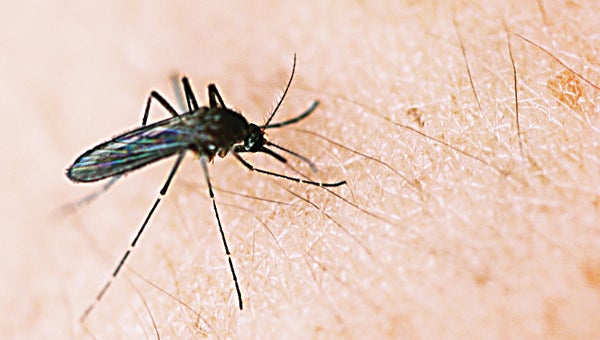First case of Zika virus confirmed in East Tennessee
Published 10:26 am Thursday, February 11, 2016

Metro Services
Though mosquitoes are not transmitting the Zika virus in Tennessee, travelers to affected countries are at risk of getting the disease and returning infected. It is unknown if the disease can be transmitted from person to person, but the Department of Health said it can affect unborn babies adversely if the mother becomes infected.
The first case of the mosquito-borne Zika virus in East Tennessee was confirmed Tuesday by the Centers for Disease Control and reported to the Tennessee Department of Health (TDH).
However, the appearance of this South and Central American disease in Tennessee was apparently no surprise.
“We have been expecting an imported case of Zika virus disease and we believe more infections are likely as people travel to and from areas where the disease is currently being transmitted,” said TDH Commissioner John Dreyzehner, MD, MPH. “Zika virus, with its association with the birth defect microcephaly, is understandably scary and has captured all of our attention. But the good news is mosquito bites which transmit Zika are entirely preventable. Because there is no vaccine to prevent Zika virus disease and no specific medical treatment for those who are infected, TDH urges all who may be considering travel to the growing number of countries where there is evidence of the disease being transmitted to have heightened awareness and protect themselves and others from mosquito bites.”
The location of the individual affected in East Tennessee is not being disclosed due to health privacy regulations, but the individual was infected during overseas travel and was not infected here in Tennessee, according to Shelley Walker, assistant director in the TDH Office of Communication and Media Relations.
“We are learning more about Zika every day,” said Walker. “It is primarily transmitted through the bite of infected Aedes mosquitoes, the same mosquitoes that spread Chikungunya and dengue. These mosquitoes are aggressive daytime biters and they can also bite at night.”
Walker explained that the mosquitoes become infected when they bite a person already infected with the virus, and then spread it to others through bites. The effects of this type of transmission are typically mild, according to state epidemiologist Tim Jones. In fact, 80 percent of those affected do not show symptoms, Jones said.
According to a press release from the TDH Tuesday, the most common symptoms, affecting 20 percent of those bitten, include fever, rash, joint pain and red eyes.
However, when a pregnant mother becomes infected, her unborn child may be at risk of contracting the disease as well. According to the TDH release, there have been increased cases of microcephaly which may be associated with Zika virus infections. Microcephaly is a condition in which the head of a child is smaller than normal and may lead to a child experiencing other health challenges like speech functions, seizure, hyperactivity, coordination problems and other neurological disorders.
“TDH advises women who are pregnant or of childbearing age to especially understand the risk of contracting Zika virus disease,” the release said.
For these reasons, the CDC and TDH urge everyone who may be traveling to affected areas to take precautions. To view the current list of affected areas, visit www.cdc.gov/zika/.
Applying mosquito repellent, wearing long sleeves, treating clothing with permethrin, sleeping under a mosquito net and avoiding the application of fragrance are recommended preventative practices by the TDH.
If people suspect they may be affected, especially pregnant mothers, TDH encourages them to seek professional medical advice.
“While public health and medical professionals have a good body of knowledge about many mosquito-borne diseases, there is still much to learn about Zika virus disease,” Dreyzehner said. “At present there are still questions about its transmission through sex and other avenues. Pregnant women or people who develop a fever within one week of returning from an affected country should contact their personal healthcare professional for advice.”




